An African American Man’s Experience as a Friend
Like many of us, I came to the Quaker faith community broken and with lots of burdensome spiritual, emotional, and psychological baggage that stifled my soul. But hidden beneath, within, and among those heavy bags were blessings that lightened the load.
The bags were filled, in part, with the indelible effects of racism. I grew up in North Carolina in a small Jim Crow town that was dominated by the Ku Klux Klan. Like much of the baggage we carry, there was a blessing in that bag. The blessing was that this small town was integrated due to the mandatory desegregation of schools and other public facilities.
Another burdensome load was my fundamentalist Baptist upbringing, but I was blessed that it didn’t define my faith. As a college exchange student, I lived in a Japanese Zen Buddhist monastery, which broadened and deepened my religious sensibilities.
I was further weighed down because I was gay and felt isolated. Through therapy, I have struggled to accept myself and connect with others. My blessing was finding a life partner whom I married a year ago after 43 years of living together.
On my journey, I found comfort in the words of Iyanla Vanzant in her book Acts of Faith: Daily Meditations for People of Color. She writes:
Being broken does not mean you are unequipped. There are enough pieces left for you to grab onto, hold onto. . . . More important, there are the pieces that well up from deep inside your being that will guide you surely and safely.
As a Quaker I believe it is that of God within me and every person that will help me put my soul back together.
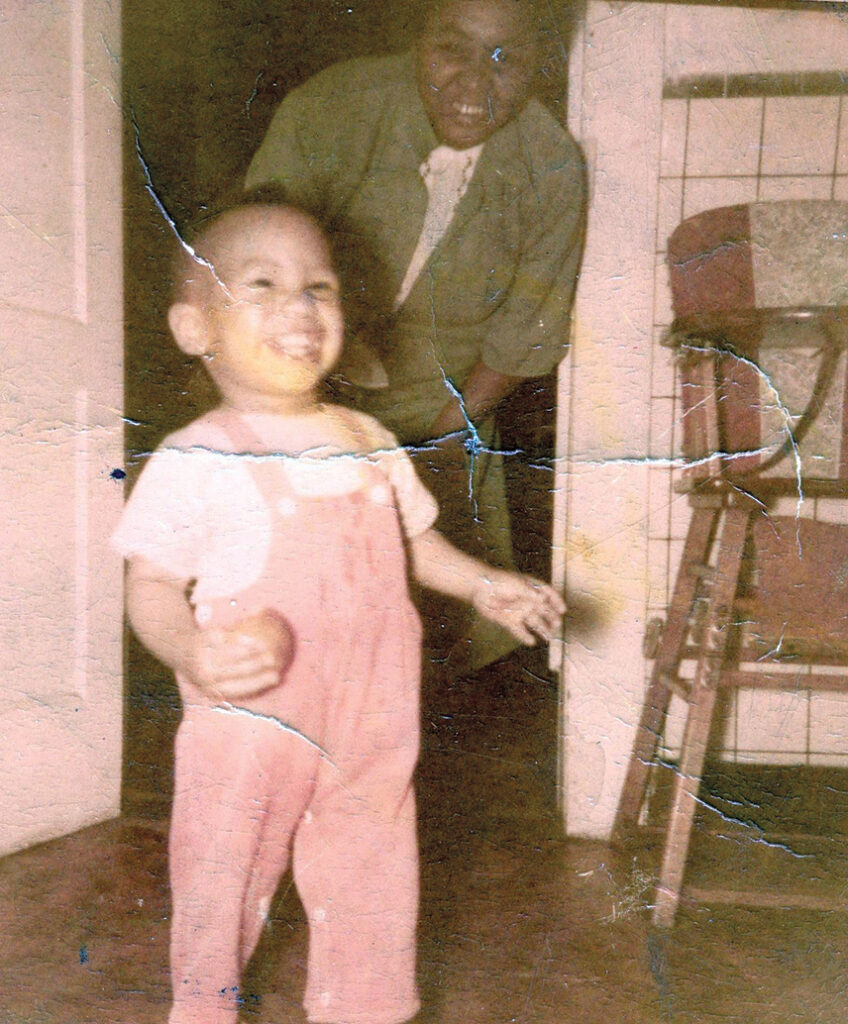
I came to the Quaker community with many assumptions. First, I thought that Quakers never owned slaves and had always opposed slavery. That is not the case. It was the effort of many Friends who forced the issue of abolition onto the wealthy Quakers who chose to ignore the horrific realities of slavery.
Second, I assumed that slaves and freed Black people were always welcome as Friends. Not so. It was not until 1795 that Joseph Drinker wrote Plea for the Admission of Colored People to the Society of Friends.
Third, I assumed Friends kept good records of their community, but according to Henry Cadbury: “The earliest Quaker of African descent has no name and only sketchy information that he belonged to a meeting in New England.” Sarah Grimké says: “They would not affirm his gift in the ministry.” According to the authors of Fit for Freedom, Not for Friendship, “The acceptance of African Americans into Quaker fellowship was no more common in the nineteenth century than it had been in the eighteenth.”
Fourth, I assumed all Quakers would look for the divinity within each person regardless of skin color. However, African Americans admitted to Quaker colleges experienced blatant racism during the 1920s. Friends meetings were slower to integrate than schools because of their bias against African Americans. It appears that even in the 1970s, African Americans in Quaker communities were still feeling isolated and marginalized. Imagine what a shock it was for me to read Fit for Freedom, Not for Friendship. I also expected all Quaker communities would accept gay, lesbian, and transgender people, but I was saddened to learn that many meetings have lost part of their congregations when they sought the sense of the meeting to become a welcoming community.
Quaker communities are struggling with the same issues as Mainline Protestant denominations, a fact that added a bit more weight to my emotional backpack. In my research, I discovered an article by Kwasi Wiredu: “Democracy and Consensus in African Traditional Politics,” which said that “arriving at a consensus as a mode of decision making is not just a Quaker approach. It is the way decisions are made and implemented in many African societies.” Also, according to Mark Ellingsen in “Can Ancient African Styles of Making Decisions in the Early Church Still Work Today?,” the “use of silence in reaching decisions is not totally foreign to African cultural ways.”
The dispossessed are those souls broken, like me, by waves of life, whether born into poverty or struggling with subtle racism in the workplace. By embracing our brokenness, we find pieces that make us unique and talented; we discover our gifts.
One of my professors from Colgate Divinity School, James Cone, once said that “being black in America has little to do with skin color. To be black means that your heart, your soul, your mind, and your body are where the dispossessed are.” The dispossessed are those souls broken, like me, by waves of life, whether born into poverty or struggling with subtle racism in the workplace. By embracing our brokenness, we find pieces that make us unique and talented; we discover our gifts. So, what are the gifts or blessings I can bring to this community?
First, music is a gift. We all know that early Quakers eschewed music as part of the worship experience. I believe, as Hans Christian Anderson stated so beautifully: “Where words fail, music speaks.” I bring music from the Black religious experience of spirituals and gospel songs. I am thankful that my unprogrammed community welcomes my sharing songs when the Spirit leads. I try not to abuse this privilege because I know the value of quiet contemplation.
Second, there is the gift of spoken ministry. As a former chaplain, I enjoy sharing meditations, and I spend much time researching and reflecting on them. Brief meditations may complement our time of deep, silent worship. It is important to highlight the Black experience by seeking recognition for Austin Steward, an unsung abolitionist, and to bring attention to Benjamin Lay, an early revolutionary of the Quaker faith and of our country.
Another gift is openness. I try to be open to the Spirit and open to the community around me. I have found that messages shared by other members have spoken directly to my needs. I am so thankful for this spontaneous ministry. I am also thankful for emotional acceptance. Being able to grieve and share my pain with members has been a true blessing. There is so much power in letting tears flow and hearing sounds of wailing within the silence of the room, knowing in this silence is support and love.
I also share the gift of hugs. Embracing others creates connection; a hug is uplifting, an act of support and encouragement. I am pleased and blessed to give and receive hugs within our community.
Then there is hospitality. I am not referring to “Southern hospitality,” even though I was born in the South; rather, I am referring to hospitality as defined by Henri Nouwen in his book Reaching Out: The Three Movements of the Spiritual Life:
Hospitality means primarily the creation of free space where the stranger can enter and become a friend instead of an enemy. Hospitality is not to change people, but to offer them space where change can take place. It is not to bring men and women over to our side, but to offer freedom not disturbed by dividing lines.
This concept was developed during my years of theological study and is practiced in my daily life.
A final communal gift involves sharing food. I try to prepare something healthy and delicious for our refreshment time. This act nourishes not only the physical body but the spirit and soul as well. The foods we make or bring reflect our ethnicity and culture and enhance our appreciation of diversity.
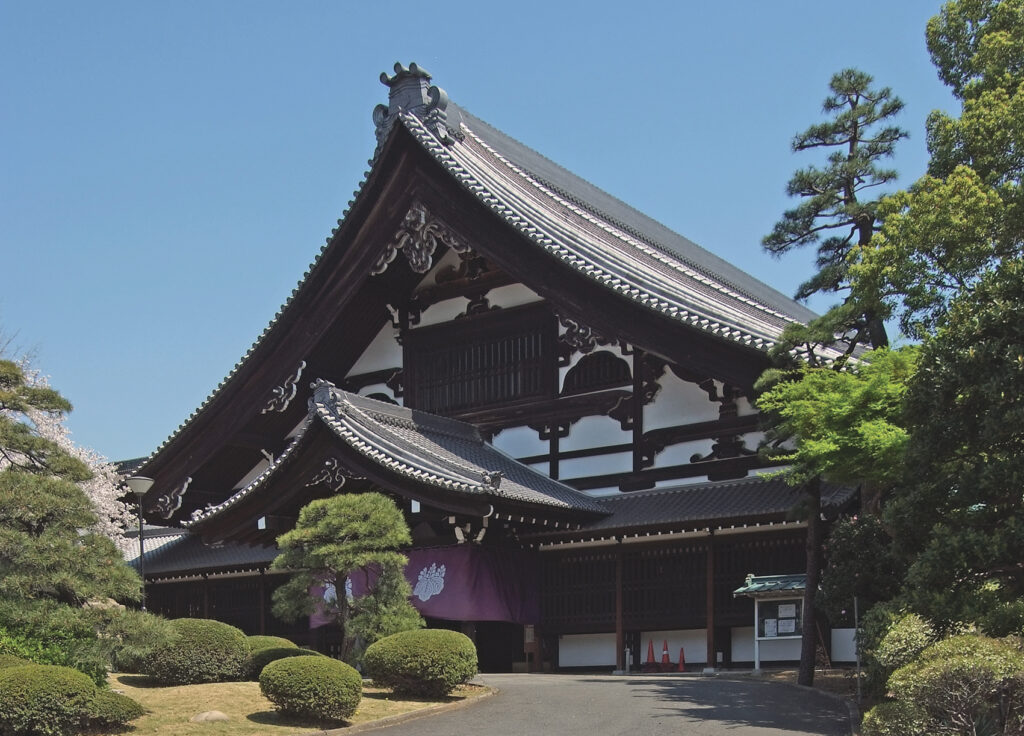
I have tried to bring the gifts of my life experience to the community. Several years ago, I realized that one of the areas where I could make a difference was in reaching out to the Hobart and William Smith Colleges community in Geneva, New York, through ads in the student newspaper. The good news about the ads is that they made the college community aware of our existence and allowed me to build good working relationships with the student newspaper staff and to introduce them to unprogrammed worship (unfortunately the Central Finger Lakes Meeting was later laid down).
An Ashanti proverb is said to state: “True power comes through cooperation and silence.” I would like to share a quotation from a book mentioned earlier, Acts of Faith:
Have you ever heard the sun come out in the morning? Did you hear the moon come out last night? . . . We have been taught in this society that power is loud, forceful, aggressive and somewhat intimidating. It is not. In silence the Creator works. His creations all appear in silence. In silence one becomes attuned to the energies and forces that are unseen and unheard. In silence one learns to cooperate. . . . In silence one learns to bring the head and the heart into cooperation in order to move with the strength and power of the forces in the flow.
I hope that my gifts of compassion exemplify the silent strength that George Fox calls us to demonstrate.
I have shared my brokenness with you, the baggage that I carry. May it be a blessing to help each of us embrace our own humanity and see that of God in each other. By integrating my body, mind, and spirit, I aim to grow in compassion and empathy, thus allowing the Divine within me to touch whoever comes into my life.


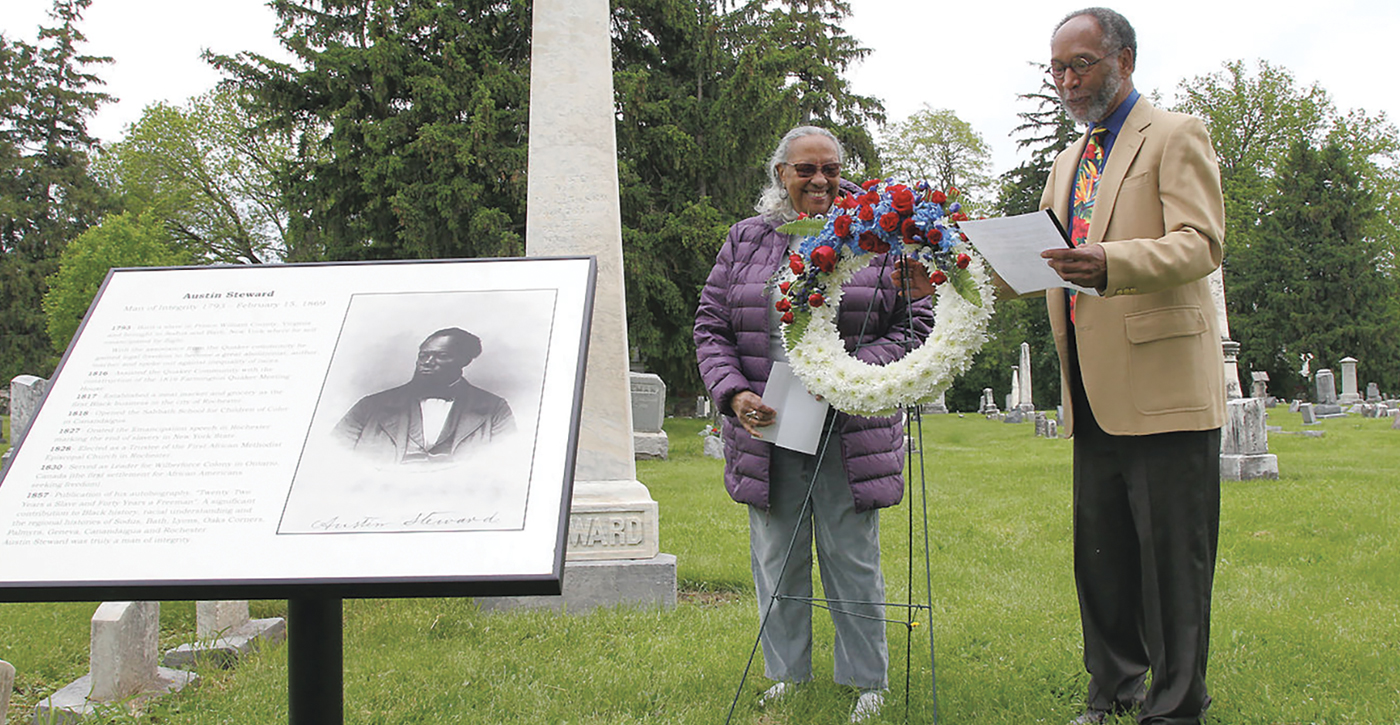
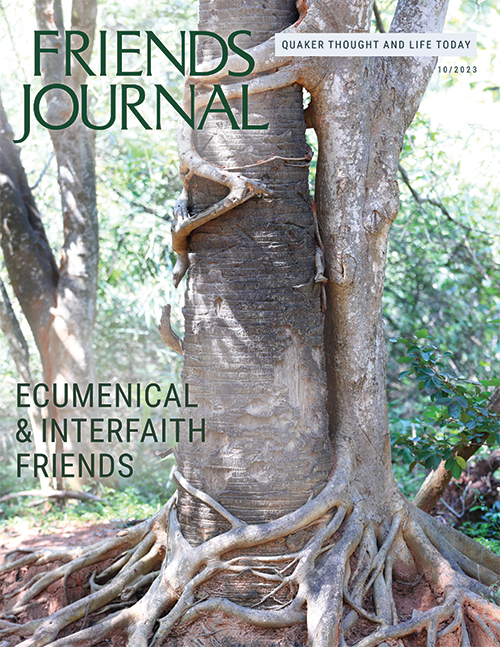

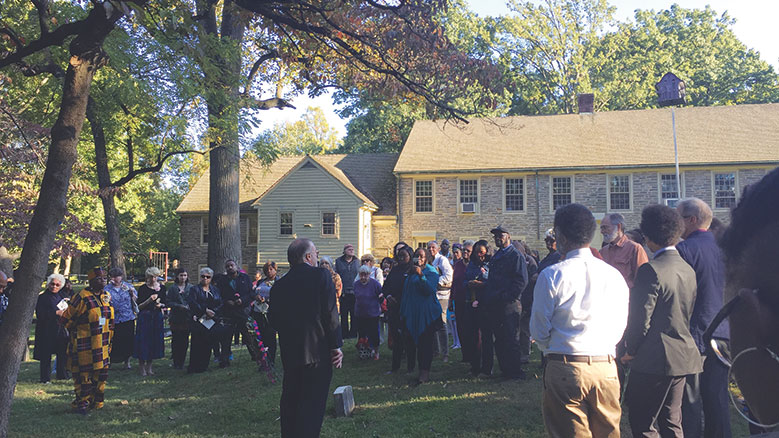
This essay by Chester Freeman is so moving and so beautifully written. He has such a gentle way of bringing deep humanity, understanding, and perspective to even the most upsetting and seemingly intractable issues we face. I am more hopeful, too, now.C
Chester writes from his heart, his soul and his head. As a result this article is informative and inspirational. Thus it is ripe for personal and collective actions needed to address the challenges issues of our time such as racism, poverty and human justice.
Bolgen Vargas,
Author of Let Our Children Soar!
Chester is able to take such sensitive issues and describe them with grace, compassion and directness. He describes beautifully the overcoming of trauma in his life and brings forth so many gifts. Chester himself is a gift. Amazing article!
Beautiful article and thank you, Chester, for sharing about your burdens and gifts. It’s a gift to read your writing and learn from your experiences and vulnerability.
When I first saw Chester he was siting in a pew in our Quaker Meeting. He was sitting a short distance away and I could feel his refined and gentle spirit. He is a man I was eager to know. Chester moved quickly from being a stranger to now being a treasured friend of mineV who lifts me up.
I love Chester’s writing and his fierce and kind call to all of us to radical faithfulness and beloved community. He is a treasure and I’m thrilled he is now writing for Friends Journal. This piece is a blessing to us all!
Mr. Freeman presents a unique reflection of life experiences from childhood, college, and the overall challenges of life as burdensome, spiritual, emotional, and psychological baggage that stifled his soul. The usage of the quote by Iyanla Vanzant has significant meaning: “Being broken does not mean you are unequipped. There are enough pieces left for you to grab onto, hold onto. . . . More important, there are the pieces that well up from deep inside your being that will guide you surely and safely (Iyanla Vanzant).” Mr. Freeman identifies the unique gifts or blessings that touch his article’s depth. Mr. Freeman is an uppermost writer in expressing humanity.
I always enjoy reading whatever Chester writes. It is insightful and makes you think about what a struggle African Americans have been through and still continue to face even in 2023. May we read Chester’s article and make a determined effort to be more welcoming and compassionate as we meet people who are constantly dealing with struggles.
I am so proud and humbled to have Chester Freeman as a close personal friend, and when I get chances to read his writing for the public, I am astounded at the power of it. He speaks truth so uncompromisingly and yet so gently. He is truly a leader. His authority comes from his humility, gained from many challenging life experiences, the baggage he knows all too well. We are so blessed to have this man share his deep hard-earned wisdom with us. Thank you, Chester!
Accessible, vulnerable, welcoming, learned, generous and warm, Chester’s writing reflects his being. Thank you Chester.
Wow, though written in simple, clear language, Chester’s essay has so many layers of meaning. In brief, eloquent form he tells his personal story, identifying painful baggage and precious gifts; teaches us (me) of the sometimes unpleasant history of Quakerism as it moved haltingly toward greater light; and offered up practices of coming into Spirit. The piece resonates like a deep message one might share in the silence of Meeting for Worship.
What a wide-ranging, challenging, and loving article. Extremely helpful to have these hard facts laid out in such great number in such concise order. Thank-you, Chester!
This beautiful spiritual self-examination by Chester Freeman asks me, gently, to search my life as a Friend as he has searched his. He extends grace to me as I look to see where I have accepted blight and disdain in the community of Friends, participated in it, failed to sense it. His accounting of his blessings asks me to search, too. He offers singing, food he has cooked, his words. What am I led to offer? How can I listen better to know?
This gentle, powerful expression of heart, mind and spirit invites us to unlock our own “baggage with blessings.” To unpack his, Chester creates a space of honest understanding of his personal, racial and religious history, and within it, sanctifies the silence to hear others’ voices as well as his own inner guidance. A grateful and peaceful self emerges, with the dignity and compassion to share loving gifts with the world. Much to take away from this – thank you, Chester.
Thank you, Chester, for sharing your personal and inspiring experiences. The title (Baggage with Blessings) is immediately engaging. The photo is a story in itself, from Judith Bryant’s radiant smile to your earnest reading. After reading your narrative, I felt the way your necktie looks: radiant!
I will always think of Chester as a gentle man, and his words and actions always encourage me in my daily life. Even during the busiest of times, he’ll reach out and offer friendship and understanding. This article exemplifies who he is and what he stands for – a wonderful tribute to his life. Thank you Chester.
I am privileged to be able call Chester Freeman a friend, and to have watched this article develop from its first drafts on, including the sharing of an early version through my meeting’s newsletter (South Mountain Friends Meeting, Ashland, Oregon). The power and grace of his writing, and the warmth and resilience of his spirit in the face of the burdens he writes of here (and others that his friends are aware of) continues to astound and delight me in this mature version of the piece. Many thanks to FJ for offering these gifts to a wider readership.
Thank you Chester for researching the past and for showing up in your humanity and Divinity.
How could we all help our less wise, insightful, loving, and forgiving friends unmet? Abolition was a start, but how much remains to be done? Do we need to exclude and incarcerate any non-violent offender, especially before trial if we presume everyone is innocent? Do we need to retrain and re-equip all police to identify biases and use less lethal methods and gear to better protect anyone already having the worst day of life? Should we consider many alternatives and actually use the least-force needed to prevent a negative spiral of harm causing more harm? Do we need to exclude and ignore any offender from the right (not privilege) to vote? Balancing with a Buddhist saying “desire causes pain” what can we do best to better love and forgive all our neighbors, including globally?
What a gift to read and reflect on Chester Freeman’s “baggage with blessings” FJ article! Mr. Freeman’s compassion and humanity shine through, as well as his knowledge and understanding of our baggage-laden history–a history that should be taught to all school children. Growing up as I did, in the era of the Jim Crow South, I deeply appreciate your searching (and finding) blessings amidst the baggage. Thanks for this timely contribution to our world when the need is so great for compassion and recognition of one another’s humanity. Thanks, too, for the picture of Judith Bryant reminding us of her ancestor’s work for justice that has benefited all of us.
I am not black. I am not gay. I am not a Quaker Friend. I have not experienced physical abuse and I was raised in a loving family. I have not experienced severe illness. My blessings are countless…and they include Chester.
Chester’s ability to express his innermost feelings so beautifully is amazing. His insight and generosity is boundless. While I can never really know what it’s like to experience all that he has experienced, his writings take me as close as possible. I am proud to call him my friend.
As usual, I was very honored to read Chester’s new publication. I am a former neighbor of his and was blessed the day that I met him.
I too am not black and it hurts that people feel so free to not be accepting of anyone who is different from themselves .
The article was very interesting and shined light in such a thoughtful way on the discrimination of others and Chester himself has turned it into blessing as he had his heavy bag of weariness but always found a gift of compassion. I too look for compassion in this world and believe so deeply, that our Lord will help us all.
Thank you Chester!
Each year I challenge myself to do more than ever before to confront social injustice in general and racism in particular. The effort can be daunting in the face of the darkness that seems to be relentlessly enveloping our civilization. Chester’s words and research have provided me with additional tools and strengthened my resolve never to abandon the cause!
Chester opened my eyes as to how late the Quakers came to accept Black folks as part of their spiritual community; I was of the impression they were always welcoming…
I have known Cheater for many years and his serenity during (and learning from) hard times is admirable. I enjoyed seeing photos of him as a boy; even then, he exuded joy. I can sense from the the photo of the Japanese monastery the sense of peace and acceptance that Chester must have felt spending time there. I look forward to future essays from him!
As usual, you did an outstanding job. Though you have baggage, as we all do, it does not weigh you down. Despite the baggage, there is no hint of anger or bitterness in your writing, neither is there is hint of despondence or self-deprecation and I admire you for that. You are quite a word master. Your words are captivating and held my attention throughout as I read the article. Even as you transition from one piece of baggage, it is done smoothly. Your descriptions are so vivid which made the article easy to read. I love how you began describing each piece of baggage.
I also loved the picture and the apple that you were holding was a very nice touch.
Anyone who has ever felt broken or isolated will be deeply moved by Chester Freeman’s powerful, but soft-spoken, essay. Thank you, Chester, for inviting us to share in your journey and for showing us so eloquently that it is possible to find strength in community and to find peace, regardless of the baggage we carry. “The use of silence in reaching decisions” is a fascinating concept. Especially now.
As much for those no longer with us as those alive today, Reverend Freeman encourages us to reject the studied amnesia that creates destructive silences. These words like those in his writings elsewhere help to transform our baggage into blessings. For this, I thank him.
Norrece T. Jones, Jr.
Author of, Born a Child of Freedom, Yet a Slave
Chester’s many gifts, in addition to the ones he describes so thoughtfully in his essay, are a blessing. The greatest perhaps being his ability to quietly but forcefully bring truth and beauty to the written word. Thank you Chester sharing your gifts!
I always enjoy Chester’s writings. This piece was absolutely beautiful. Additionally, I always learn from his work. Today, I learned more about the Quaker faith and practices through the years. Keep writing and sharing, Chester.
Again, such a profound piece. Chester never ceases to amaze me with his insight and experience. We continue to be blessed with his writings which he shares with the world. Beautifully written as always.
I smile whenever I read one of Chester’s stories. Not because they are easy to read about we fellow humans, or the causes and conditions that cause us to become broken. Rather I am so encouraged that there are people like you Chester, that are so erudite it compels me to examine my own biases. I found the experience of reading this article humbling and provocative.
Thank you, Chester, for sharing these reflections. I am always amazed at your ability to weave seamlessly into your own story such rich and colorful strands of stories from many times and places. Having shared with you some of the challenging as well as the joyful periods of Central Finger Lakes Meeting, reading your essay left me with more positive memories of those years.
Thank you for sharing your authentic story. You continue to make a positive impact with the people around you and that is a beautiful thing.
Chester’s essay sharing his insights about how to live a meaningful, rewarding life despite our communal and individual brokenness is useful to everyone, regardless of gender, race, sexual orientation, religious denomination, or any other, specific factor. Chester generously shares his personal issues but clearly points out a path toward finding meaning in those blessings that each of us does have even in the midst of our brokenness. He also shows how that very brokenness, which we share with one another, can be a powerful unifying and healing gift. Thank you, Chester, for this lovely sharing of your insights!
Chester, in his always gentle, thoughtful, and inspiring way, sets an inviting and workable model for each of us to unpack our own personal baggage and, with positive endeavor, move forward to realize and celebrate the bounty of gifts we are all blessed to possess. During this autumnal season of celebrating Thanksgiving and the annual harvest – I know I am truly thankful for Chester’s writings, and his unburdened ability to connect with each reader through the not-so-pretty stuff and balance in return with the good stuff on the plate.
Thank you, Chester for this wonderful essay and leading us to a place of better understanding, patience, and discovery.
Very insightful as always with Chester’s thoughts. I am impressed at how open he is to sharing the difficult times of his life — we can easily talk about our successes, but not always the hard road to reach them. In the conclusion of his article he wonders what gifts he can bring to the community: this honest story of his experiences and his thought processes is certainly a valuable one.
So beautifully written and enlightening as is characteristic of Chester Freeman’s writing, this essay Baggage and Blessings is no different.
Inspiring, insightful, and informative, it opens one to a potentially life changing learning experience(s), a deeper knowing of the author and a richer knowledge of the history and practice of the Quaker faith. In the telling of his own story he evokes within the reader to reflect on his/her own life to ’embrace our brokenness (baggage) so that we too might discover our gifts’ (paraphrased).